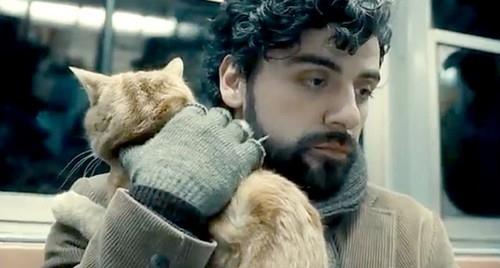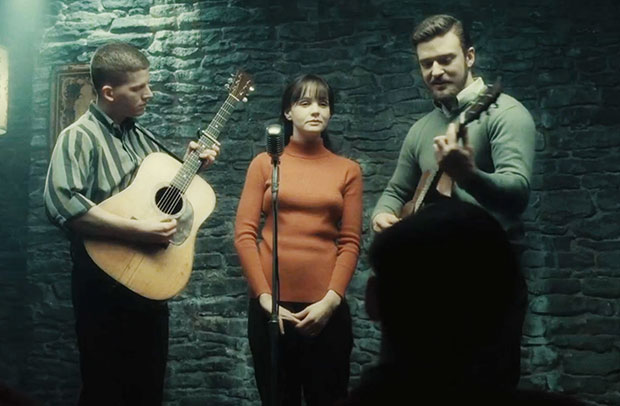Saturday, November 16, 2013
LEFF: "Only Lovers Left Alive", one thousand years of existencial crisis
I'm not a superstitious Victorian but, in these days, vampires are all around the place. From massive book and movie franchises, Twilight put them out there. It sucked the gloom out of the heirs of Count Dracula and Nosferatu, turning them into teenage sparkling fantasies, while shamelessly disregarding any consideration for the culturally and socially cemented vampire mythology. But the important thing is: they are being seriously revised. Abraham Lincoln: Vampire Hunter, however stupid it may sound, plays with the historical figure of the American President; the incredible Swedish Let the Right One In tells a sinister love story between vampire children.
And how would Jim Jarmush do it? Well, by simply fang-biting a Jim Jarmush story and turning it.
Only Lovers Left Alive is a languid, ironic, existentialist, dark romance about two lovers who have been in love for centuries. Adam (Tom Hiddlestone), in black, is a suicidal romantic musician, cynical about the current times, still mourning over the death of his heroes (Galileu, Newton, great scientists mostly), depressing over technology and a decaying, valueless society, revolted about the way his musical career turned out (he never put anything out there, though he's the real composer of some of the greatest Schubert pieces, and the others). Eva (Tilda Swinton), in white, is a wise, restrained but grateful, tolerant, kind, dance-loving "person", still bewildered by book passages she's been reading for hundreds of years (when she travels, she literally takes the best books ever written, which obviously includes David Foster Wallace's Infinite Jest). Two unforgettable performances (is it that everything Tilda touches turns into gold?) fairly sidekicked by John Hurt (I always bow down to this guy), Mia Wasikowska (feels so real that she was bit around the sixties and currently lives in L.A.) and Anton Yelchin.
The couple is melancholically cool ("That is so 15th century."). The places are metaphors for contemporary America and a convicted world. Seductive roamers, car night-drifters, they cross back and forth through the bankrupt, collapsed city of Detroit (where operas were once sang in beautiful theaters, where the greatest American cars were once made) and get stuck in Tanger, Morocco.
References and self-consciousness are just enough, shedding the film in an amusing, playful aura (Marlowe wrote everything Shakespeare took credit for, and still hates the "philistine" for it; Eve's sister draconian qualities turn out to be mere pesky teenage irresponsibility; humans are called "zombies"; it abandons the elegant stylistic virtues of the first five minutes to focus entirely on the characters).
This is mythological: they have fangs, they're bloodsuckers, they can turn people or suck them to death, they can't live during the day, they're immortal but can die if stabbed with a wooden spike or shot with a wooden bullet, and so on. But this is also the most human, naturalistic vampire story imaginable - say, they don't sleep in coffins because things can be much more comfortable and... normal. They struggle to stay hidden, because the media would destroy them. They struggle to stay fed because society would catch them (you can't throw bodies in the Thames like in the 1600's).
But, most of all, though they've been everywhere and witnessed everything, though they're the most cult and bright people in the world, they struggle to find a meaning of life. And just like in a Woody Allen film, only love keeps them alive.
Labels:
Anton Yelchin,
Estoril'13,
Jim Jarmush,
John Hurt,
Tilda Swinton,
Tom Hiddlestone
Sunday, November 10, 2013
LEFF: "Inside Llewyn Davis", a masterpiece, should we wonder why?
Bob Dylan sang about how times were changing. When he was electrified from cord-drumming, frayed folksinger into one of the most influential rock starts of all time, he was scared as all shit and his first albums were blown in the same winds that flurried the countercultural long hairdos of hippies and easy riders. Those are the biopics of legendary historical definition we know. But Inside Llewyn Davis takes place in 1961, right before Dylan arrived to the New York folkscene, and hums about the ragged waifishes whose verses never met acclaim but had to be sang there and then if the unfathomable, shadowed roots of change and success of folk music were to grow.
They were a meager coterie of young folk musicians who had their own culture, away from the America of the McCarthyism, and despised the ephemeral, gooey pop commercial hits the radios played. They gigged in the heavy scented cafés of The Greenwich Village, dark holes where this secret language expressed the native rawness, honesty and the hoarse authenticity of the early music, without ever glimpsing at what the world was saving for three-cord players. They were a tale of suspension, of in-between. That's were Llewyn starts, joking that if it's not old an it's not new, then it's a folk song.
Our guy is a penniless, couchsurfing homeless, has a passive-agressive relationship with a woman he impregnated who needs to abort, can't get representation nor royalties, doesn't sell, loses a cat and so on. Brave and brilliant storytelling create characters and tone (two of strongest elements of the coenesque) not according to the brothers' career but to the specific sense of time, place and people they are portraying: Llewyn Davis' life is also suspended and his journey, like the lyrics and melodies of the time, is the most sincere, authentic, emotional film the Coen's have ever made. With them, I'm used to feel fear, anxiety or existential angst, but this tragicomedy made my bursts of laugh crumble into deep sadness.
Cats are the simplest of the comic-reliefs and the few sources of momentary serenity in Llewyn's life (the others are the songs). But they're also reminders of delicious Coen trademarks - they are quirks and codes for one of the most beautiful, oneiric shots of the filmmakers' filmography. There are eerie establishing shots, with weird lines and perspective and John Goodman is a treat as their typical boaster character - a comatose Jazz musician who represents the «Folksongs? I thought you said you were a musician.» attitude and walks with the help of two crutches (wink at Wilder's Double Indemnity).
The brothers are exquisite craftsmen of plot (remember Fargo and Miller's Crossing crime twists) but, and summoning the cat's name (Ulysses), it recalls O Brother, Where Art Thou episodic framework, with an open ending that hits us with a punch in the belly and locks us in the same suspension, despair and uncertainty of the whole picture.
The cast is top notch: Oscar Isaac scores the best performance I've seen this year with restrained anger and desperation; Carey Mulligan is a beautiful, furious woman who, in other life, could've been the perfect love interest; Justin Timberlake and Adam Driver are hilarious; Garret Hedlund is silently gorgeous and idealistic, has a Jack Kerouac semblance and recites a poem echoing the Beat Generation; Stark Sands could have his own movie with only five minutes on screen; and the rest keeps up.
The details of reconstruction are precious, and the atmosphere and hue seem lifted off the cover of The Freewheelin' Bob Dylan. They keep playing with genre like no one else in the business, mixing the best of the biopic (Llewyn is inspired by Dave Von Ronk's posthumous memoir, The Mayor of the MacDouglas Street), the musical (the film is pin-pointed around full-length performances of folk songs) and the road movie.
But Inside Llewyn Davis is much more than narrative and stylistic accomplishment. The Coens created an epically intimate story about an all-time looser, a guy who will be loading forever while others make money, history and newspaper covers. It is a profound interrogation on the premise of life, where no matter how good you are, whatever you do, you'll hit on things, things will hit on you, and the future always wears a hooded cape (or a suit, but then it stands in a somber alley, like in a film noir). Abandonment and loneliness make one wrestle with integrity and despair, and the only thing capable of heating a pair of wet socks is a song that also happens to shoo the misery.
When a desk clerk assuredly asks Llewyn «You're not Hugh Davis' kid are you?», Llewyn finally cracks: «Why not?»
Maybe, again, Dylan was right: «So it ain’t no use to sit and sigh now, darlin’ / And it ain’t no use to sit and cry now / It ain’t no use to sit and wonder why, darlin / Just wonder who’s gonna buy you ribbons when I’m gone.»
Thursday, November 7, 2013
Libon & Estoril Film Festival (8-18 Nov.), starts tomorrow with amazing line-up
Inside Llewyn Davis, written and directed by the Coen brothers, opens the festival tomorrow at 22h at Cinema Monumental, followed by Roman Polanski's Venus de Vison at 00h at Centro de Congressos do Estoril.
Subscribe to:
Comments (Atom)









